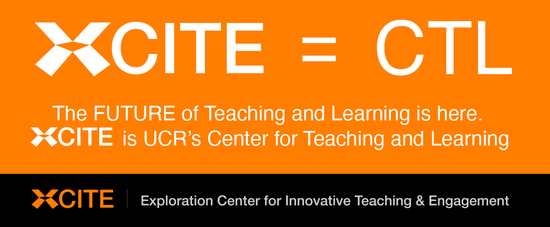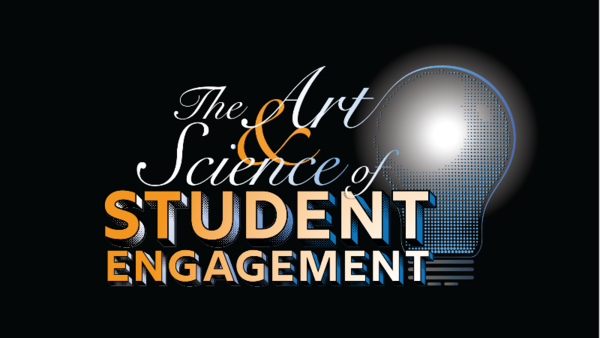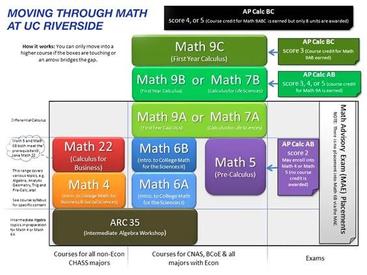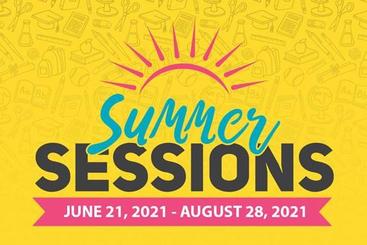
A Message from the Vice Provost and Dean of Undergraduate Education
April 2021, Spring Quarter
One year ago, faculty and staff undertook the intense labor of moving UCR’s teaching enterprise from in-person classroom- and lab-based work to a remote format in an effort to ensure access and equity for all students. Then-interim CIO David Gracey and his team moved quickly to launch the loan2learn program, helping to provide technology and ensure internet access for all students. Undergraduate Education’s (UE) newly-formed center for teaching and learning, now called the Exploration Center for Innovative Teaching & Engagement (XCITE), worked with ITS and others to quickly create resources like keepteaching.ucr.edu to help with the transition. UE also helped with other scalable communication tools to connect students with resources they needed. Technology like ScottyBot answers questions any time, day or night, while programs like the Campus Collective help incoming freshman and transfer students connect by pairing them with student mentors. In a series of virtual “fireside chats’’, I spoke with faculty, staff, student leaders, and others about learning, community, post-graduation success, and the very real challenge of burnout. We also utilized the fireside chats as an opportunity to listen to the campus. UE and campus’ response to the pandemic was possible due to the coordinated labor of so many.
Soon after campus closed, the horrific murder of George Floyd revealed yet again the ongoing racial, economic, and social evil visited upon the vulnerable by the powerful. In May and June, peaceful protests in Temecula, Riverside, Palm Springs, Corona, Fairfax, Long Beach, Pomona, and elsewhere were met with state violence and escalation. These events are not abstract news happening to other people, but daily lived experiences by UCR students, staff, faculty, family, and friends. My psychologist colleagues remind me, “trauma is cumulative,” and the racial violence on top of the health, economic, and social unrest from COVID-19 represents some of the worst sort of trauma.
This zeitgeist framed the 2020 US Presidential Election, and as UCR watched, civil servants across the country worked to tally votes. On January 6, 2021, protestors assaulted the Capitol complex. This day was an example of the vast differences in the treatment of white and minoritized people in this country. Many saw that day as a painful reminder of America’s struggle with racial injustice as images of a noose and the confederate flag were shown near or on Capitol grounds.
Also disturbing and heartbreaking is the dramatic and often-overlooked rise in anti-Asian violence, itself a manifestation of American racism. When state prosecutors dismiss the murder of Vicha Ratanapakdee as merely “some sort of temper tantrum,” it signals that violence against some people is more permissible than against others. When some officials gloss over the fatal Atlanta shooting of six Asian American women as an addiction, they attempt to constitute some lives as disposable. Xiaojie Tan, Daoyou Feng, Hyun Jung Grant, Suncha Kim, Soon Chung Park, and Yong Ae Yue were not disposable.
This is the context in which campus employees collectively plan and prepare for a significant return to campus this fall — a return that will likely take more effort, planning, and flexibility than the rapid closure just over a year ago. In this transition, we must reaffirm our shared commitment to inclusivity. By this I mean a commitment to working hard at listening to and understanding each other and seeking ways to help ourselves and others in reaching our full potential. I also mean a willingness to engage each other in the full dignity of our shared personhood.
This fall, students will arrive on our campus after a year of remote high school or college instruction. Not only will first-year students be new to campus, but their sophomore peers will be physically present for the first time since they matriculated. UCR students have watched the same events and have experienced the trauma we’ve shared, to greater or lesser degrees, over the last months and years. We are all working through the trauma, the economic pandemic, and the health pandemic. So, we must think about several connecting issues. Not only should we focus on fall planning but we must also think about the impacts of the pandemic on K-12 students, and that the effects of those impacts, such as remote learning, are yet to be fully understood. Now is the time to think about how higher education can work with our K-12 partners to restore any learning loss associated with the year of transition. Our ultimate goal is economic mobility for all backgrounds. We should be thinking about building academic futures. As the incoming first-year students take the Mathematics Advisory Exam (MAE), we will partner with the Academic Senate, the colleges, and other campus entities to help address learning gaps. During the past academic year, we saw increased demand for courses as students tried to navigate modified withdrawal policies. The key to helping students is empathy and flexibility. We must be ready to talk about how to transform higher education including the possibility of rethinking assessment, outcomes, and evaluation in a post-COVID context.
In the space below, we share some of what we’re doing to help our UCR community in reaching its full potential. If you have thoughts or ideas— or questions or concerns—please talk to me or one of the folks below. We know that together we can do better—and we must.
Jennifer Brown, Ph.D.
Vice Provost and Dean of Undergraduate Education
Academic Excellence
In October 2019, XCITE became the newest unit in Undergraduate Education. Located inside the Rivera Library, XCITE is UCR’s first Center for Teaching and Learning. When the pandemic impacted campus activities in March 2020, XCITE partnered with the Library, ITS, and academic departments to support the continuity of teaching.
The XCITE mission is to work with campus partners to create innovative and impactful teaching and learning solutions that drive academic and inclusive excellence. The XCITE team is here to assist faculty and staff with course or program design and meet campus stakeholders wherever they are in the course development and planning process. XCITE staff are dedicated to:
- Imagining and defining courses in various modalities;
- Teaching and learning best practices/pedagogy founded in research; and,
- Evaluating course effectiveness for measurable results in student success and continuous improvement in knowledge transfer.
XCITE offers:
- Consultation;
- Workshops and webinars;
- Original digital course content development;
- Assistance with all modalities of teaching and learning; face-to-face, online, hybrid-classic, and dual-mode courses for fall 2021 and beyond; and,
- Studio-grade production services resulting in an effective and professional transformation of your lecture material to any modality.
XCITE also offers a unique space for faculty to come and explore the future of education. Watch this video for a quick overview of our services.
Canvas
XCITEing news! Instructors can now log into Canvas at https://elearn.ucr.edu/ and find their own private sandbox to explore the various teaching tools within the new learning management system (LMS). A Canvas sandbox allows instructors to set up a course template that can be easily transferred to an official course. The sandbox is a perfect space to understand how Canvas looks and feels prior to a course going live on this platform. Canvas is designed to provide a fresh, improved, and user-friendly course management experience. Some of the enhanced features include:
- Class announcements/notification to students via Facebook, Twitter, email and/or text;
- Course calendar that feeds into Google Calendar, iCal, Outlook, etc;
- Hyperlinks to course syllabus content that show up in the student's electronic calendar;
- Instructor's ability to easily upload, organize, and lock files;
- Discussions can be easily viewed/filtered;
- Flexibility in adjusting time for exams for students who ask for time accommodations;
- Gradebook function allows for weighted grading; students can enter “what-if” scenarios to calculate hypothetical grades; and,
- Drag/drop modules to organize content, ability to set prerequisites and completion requirements, and require sequential module completion.
Since summer 2020, Canvas has served over 15,000 students and 1,200 courses at UCR. iLearn (Blackboard) will sunset in June 2022. Winter and spring 2021 will continue as pilot quarters as XCITE continues to work with ITS on the Canvas rollout. Also this spring, XCITE will meet with academic departments to discuss the full transition to Canvas. Please contact Israel Fletes (israel.fletes@ucr.edu) if you have additional questions.
Slack
For the spring term, the Slack pilot has expanded to include 24 courses that are planning to increase peer interaction and student engagement through Slack online discussions. Over 1,800 freshmen and transfer students are using Slack as part of their student life and academic programs. These programs include Highlander Connections, the Campus Collective, ASUCR government, UCR Library, and UCR Arts. The Slack platform provides several features that enhance communication within the organized slack communities such as the ability to text members within the slack community, the archival ability of email, and the informal and immediate aspect of social media. With integrations to common tools such as Google Apps, Outlook Email, and Zoom video conferencing, Slack fosters both connectivity and structure. This single platform spans across campus to support all aspects of campus life—work, research, teaching, learning, academic communities, and special interest groups. If you are interested in adopting Slack, please visit https://keepteaching.ucr.edu/slack. Please contact Israel Fletes (israel.fletes@ucr.edu) if you have additional questions.
Keep Teaching
The Keep Teaching website is a curated list of resources for all instructors and TAs to support UCR instruction. With over 26,000 page views since January, the Keep Teaching website has become the primary resource for teaching resources during the pandemic. In response to recent faculty requests, XCITE is reimagining the site with improved content and navigation to continue providing meaningful resources to instructors during and after the pandemic. Some new features you can expect to see this month include:
- Refined and organized content and main navigation for faster access to information;
- New intuitive context-driven “Dashboards” providing an at-a-glance visitor experience;
- News-driven carousel display bringing the latest ideas, offerings, and resources to the top of the front page;
- Quick Links sidebar on the main page for direct access to teaching tools, resources, and support;
- Dedicated “Recent Topics” sidebar for each section to provide quick answers and guidance to the most relevant questions;
- Dynamic events page and events listings for easier opt-in to discussions, workshops, and webinars;
- Reorganized TA resources section; and,
- Improved search bar enabling searches on the Keep Teaching site, or broader searches to include the UCR site and beyond.
Fall Planning
Undergraduate Education and XCITE are collaborating with academic departments to help plan for Fall 2021 face-to-face instruction. XCITE and ITS have been approved to upgrade over 100 General Assignment classrooms with new audio and visual equipment, as well as to hire up to 50 graduate students to assist faculty in dual-mode instruction for Fall 2021. The additional TA support provides faculty instructors with a resource for pedagogy and remote student engagement during the transitional year of returning to campus and as instructors opt-in to work on dual-mode instruction. Further guidance on instructional planning will go out to units in spring 2021 via the Provost’s office. Please contact Richard Edwards (richard.edwards@ucr.edu) or Israel Fletes (israel.fletes@ucr.edu) if you would like a member of the leadership team to meet with your department to share details, answer questions, and provide feedback.
Remote Course Conversion Grants
UCR’s first round of remote course conversion grants has been awarded to 19 instructors. Faculty members will earn an online teaching credential through the Online Learning Consortium, a nationally recognized leader in online education. Grant recipients will also work with an XCITE Instructional Designer to utilize research-based best practices in online course design and develop an enhanced version of their emergency online course that reflects improved course quality in accordance with nationally recognized standards for online teaching and learning.
Coming Soon!
Launching April 22nd and hosted by Cheryl Diermyer from XCITE and Ann Quinn from University Extension, The Art & Science of Student Engagement is a seven (7) part online workshop that focuses on best practices for student engagement in remote, hybrid, and face-to-face courses. Topics include: preparing your students to engage, pedagogy and technology of student engagement, diversity, equity and inclusion, engaging students in academic integrity practices, and preparing for what comes next. Registration closes Thursday, April 22nd.
In collaboration with University Extension, XCITE is co-hosting the upcoming Disruptive Education Symposium. The virtual symposium explores best practices and lessons learned during remote teaching and the possibilities for the post-pandemic university. The symposium is scheduled for May 7–8th and free for all UCR faculty and staff when using the discount code XCITE. Additional details and registration information can be found here.
The Celebration of Teaching, sponsored by ADT and XCITE, recognizes excellence in teaching and learning innovation among UCR faculty. Please join us on May 19th as we honor award-winning faculty and showcase exceptional teaching at UCR. More information to follow soon on the Keep Teaching website.
Academic Resource Center
Many students begin their mathematics journey at UCR by taking the Mathematics Advisory Exam (MAE). The Academic Resource Center (ARC) is messaging incoming freshmen in majors that require math, via MyUCR and sending targeted emails, to share that incoming students should finalize their math placement by July 7th. Admissions will also include the date in their “Next Steps” information guide. Orientation has updated their website with MAE messaging and campus partners have been asked to include the date in their communications to incoming students. Help us get the word out by pointing students to the MAE website.
Summer Sessions
Summer is almost here and preparations are well underway for the largest summer course offering ever! All courses will be offered remotely. In 2021, there will be over 700 primary courses offered by 44 academic departments! Summer Sessions has been working with academic departments and advisors to ensure the courses UCR students need will be offered.
Summer is a great opportunity for students to get ahead on their studies, to focus on specific classes, work on a minor, or take hard-to-get classes. With all classes being offered remotely for Summer Quarter 2021, students can take courses from anywhere in the world! For more information on enrolling, dates, deadlines, or additional resources visit the Summer Sessions website.
Learn More about the Summer Sessions
University Writing Program
One year ago, no UWP courses were taught remotely. A few weeks later, they all were online. Today the UWP offers predominantly synchronous remote instruction to over 5,000 students each quarter. In several large portions of the program, you can find remote-proctored final examinations. The program leadership and individual instructors have found ways to help students acquire textbooks, deal with limitations on their computers, and cope with the pandemic's disruption of academic schedules. Many instructors within UWP have stepped up to assist their fellow Lecturers and TAs by organizing workshops and by mentoring one another in the most effective methods of online teaching.
As an academic program offering hundreds of classes each quarter, this is often the only opportunity for most students to participate in small classes with close written and spoken contact with their instructors. The UWP bears a special responsibility to pay attention to its students as individuals: as writers, speakers, readers, listeners, and, in that process, as people undergoing and coping with the personal and social trials of our times.
Learn about the University Writing Program
Academy of Distinguished Teaching
Save the Date
On May 19th, the Academy of Distinguished Teaching and XCITE will be virtually hosting the annual Celebration of Teaching. This event will honor award-winning faculty and showcase exceptional teaching at UCR. Information will be available soon on the Keep Teaching website.
The ADT continues to hold virtual office hours for faculty on Mondays from noon–1pm and Thursday from 5–7pm.
Social Connection
The Undergraduate Research and Creative Activities Symposium will be hosted on May 12th and 13th virtually. The symposium highlights faculty-mentored undergraduate research across the campus and provides students the opportunity to practice their oral communication and presentation skills as they share research findings. This year, the symposium will consist of oral presentations with an additional category for “emerging” research to help engage students with ongoing projects without research findings or data due to the pandemic.
There are three categories for research presentations:
- Completed Research
- Emerging Research (projects-in-progress)
- Creative Arts
More information is available on the Student Engagement website
Learn about Student Engagement
The UCR Campus Collective helps connect incoming freshmen and transfer students with a peer mentor who is a continuing UCR student. Student involvement in the program has exceeded initial expectations. To date, over 2,211 freshmen (44.7% of the freshman class) and 723 transfer students (32% of new transfers) have joined the program and mentor/mentee pairs have exchanged over 50,034 texts. 2,197 students have signed up to be mentors, and there is plenty of room to keep growing our support for students. For more information, please contact Dr. Tom Dickson (thomas.dickson@ucr.edu).
Learn about the Campus Collective
ScottyBot is a chatbot that uses a knowledge base to answer users' questions and provides guidance regarding campus resources 24/7/365. To date, the chatbot has had 27,300 conversations with users since it launched on June 22nd, 2020. Those conversations resulted in over 80,000 interactions with users.
Common questions include registration status, refunds, and deadlines. ScottyBot can respond to students in English, Spanish and Chinese, and also has the ability to provide students definitions of a host of campus jargon, such as Priority Registration, Student Business Service, and R’Courses. Most recently, the admissions department has adapted the bot and is using live agents to answer questions in real time.
Black Student Success Initiative
The University Innovation Alliance (UIA) is a national coalition of public research universities committed to increasing the number of baccalaureate degrees for first-generation, low-income, and people of color. Since 2014, UIA campuses have produced 29.6% more low-income bachelor degree graduates per year than they would have alone.
In October 2020, UIA launched the Black Student Success Initiative (BSSI). BSSI is aimed at creating a scalable process by which any institution can examine, unpack, and redesign processes to optimize success for African-American students that help address the unique needs of that community. The Black Student Success Initiative is the UIA's first collective effort since the announcement of the newly redefined goal: to eliminate disparities in educational outcomes based on student background characteristics such as race/ethnicity, income, generational status, gender, and geography, with specific consideration to the demographic context of each institution.
As part of this initiative, UCR is developing a plan that identifies and addresses the current achievement gap for Black students. Specifically, UCR's Black students persist to graduate at lower rates when compared to their peers from different racial backgrounds. To address this particular issue and increase the number of Black students enrolled at UCR, the BSSI team will partner with Umoja, Undergraduate Admissions, faculty, students, and Student Affairs to establish appropriate resources and best practices. Overall, the BSSI project aims to transform the experiences of Black students on our campus. A work plan is currently being developed in collaboration with stakeholders from across the campus.
Completion Grants
In 2017, with assistance from the UIA, UCR implemented a scalable intervention project called Completion Grants. Based on funding from the Ascendium Education Group and the Bill & Melinda Gates Foundation, eligible seniors who had unpaid fees were identified through student business services and financial aid. A total of 226 UCR seniors received the completion grant funds. Grants were awarded automatically by the UCR Office of Financial Aid to seniors in good academic standing with unpaid university bills. Recipients had no required meetings, workshops, or agreements associated with the award of completion grant funds. On average, seniors were awarded anywhere between 500 to 1000 dollars. Awarding seniors with a grant to help maintain their enrollment status has contributed positively to students' academic success and has been adopted in various institutions nationwide as a scalable intervention.
Please contact Dr. Kevin Graham (kevin.graham@ucr.edu) if you have any questions.
Mental Health and Well-Being
Mental Health- A message from Counseling and Psychological Services (CAPS)
Recent world events have created an array of mixed emotions and challenges. With the combination of COVID-19, the political climate, and the violence against communities of color, there is no shortage of concerns that weigh on many of us and on our students. These stressors can take a heavy toll, resulting in an increasing number of students, staff, and faculty reporting anxiety, depression, feeling hopeless and helpless, and thoughts of suicide. We do not need to confront these challenges alone.
How You Can Help
These simple actions, See Something, Say Something, Do Something, can have a life-changing impact on someone who is struggling with mental distress. Each one of our community members has the responsibility:
- To pay attention and notice potential signs of distress
- To know the campus resources available and be prepared to share them
- And to get someone involved, whether it be consulting with a supervisor or directly with one of the mental health resources available.
See Something: When looking for signs of distress, typically they will show up in multiple areas. You may see changes in emotionality; you may witness, hear, read expressions of sadness, hopelessness, or anger; and you may see physical changes, whether it be hygiene, changes in appearance, or illness. It is common for students to experience changes in academic functioning, including a decline in academic performance; extreme reactions to evaluation or grades; or even a shift in content focus (morbid thoughts or outright statements about harm to self or others).
Other common signs of distress may include:
- Symptoms of depression or anxiety
- Worsening chronic health problems
- Difficulty concentrating
- Changes in appetite, energy, and activity levels
- Feelings of numbness, disbelief, anxiety, or fear
- Difficulty sleeping
- Physical reactions such as headaches, stomach problems, etc.
- Irritability or short-temper
Say Something: When you see signs of distress it is important not to ignore them or assume someone else will intervene. You may be the last chance for an individual to get the support they need. If you are concerned about someone in distress, start with The Red Folder. It can help determine the best resources and ways to respond and help.
Do Something: Be sure to get someone else involved. Don’t keep the concern for another to yourself. Make sure that you take the time to let someone know who can help determine other support, resources, and referrals that may be helpful.
If you are concerned for a student or colleague’s immediate safety or the safety of others, or for another life-threatening emergency, be sure to call 911 or contact your local emergency services. On campus call UCPD at 951-827-5222.
For additional information on supporting students in distress, contact the Counseling and Psychological Services (CAPS) outreach coordinator, Sarah Gohn (sarah.gohn@ucr.edu) to schedule a virtual training for your group or department.
Your mental health is part of your whole health and is critical to your success and well-being.












